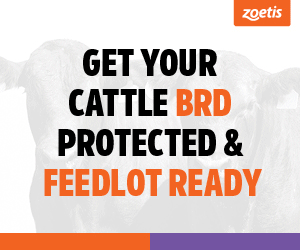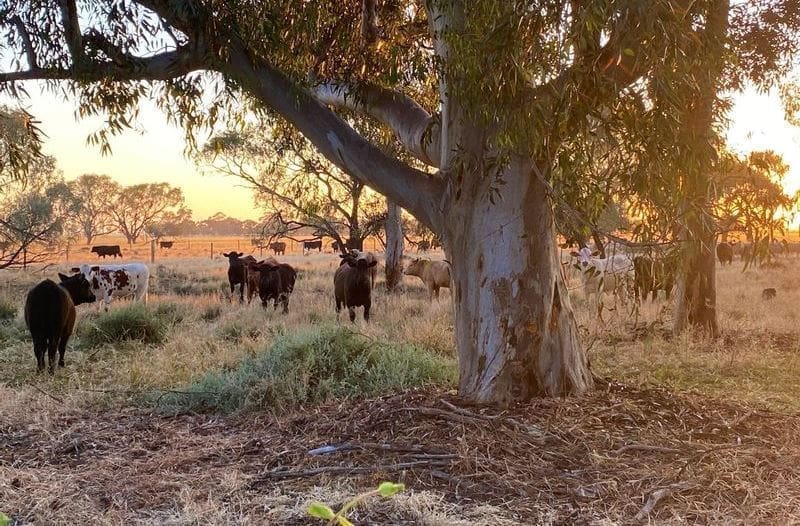AS THE Federal Government and corporations aim to fulfil their ambitious environmental commitments, concerns have been raised about some recent proposals being put forward for the agricultural industry.
Agriculture was the first cab off the rank on a series of six sectoral plans to become “net zero by 2050”, with the Government opening consultation this week. Electricity and energy, industry, resources, the built environment and transport are set to follow.
The Federal Government is also looking to overhaul its main environmental laws. While one of Australia’s big banks has pledged to stop deforestation-linked lending by the end of 2025.
All three moves have drawn concerns from the livestock industry – with different groups calling for a change of approach.
Calls for cyclical nature of methane to be recognised
In a press release calling for submissions to the net zero plan, the Federal Government said it expected agriculture to take a bigger share of Australia’s Greenhouse Gas account as other industries find “readily available and lower cost abatement options”.
But the way the livestock industry’s emissions are accounted for has a big focus for Cattle Australia since its was formed last year. The organisation recently updated its position to call for the industry to move away from carbon neutral or net zero targets because they do not recognise the cyclical nature of livestock methane.
Interim chief executive officer and director Adam Coffey said modern climate science indicated that livestock emissions from a stable herd were not contributing to warming and the conversation about methane needed to change.
“If two thirds of our GHG contributions relate to enteric methane and we now have scientific methodology that calculates these emissions and they are effectively neutral in terms of their atmospheric warming effect, then all of a sudden our piece of Australia’s annual GHG accounts starts to look very small in comparison with other industries,” Mr Coffey said.
“This is not some bid by livestock industries to shirk our responsibility, we remain fully committed to playing our part in reducing emissions, but we are seeking a level playing field – with recognition that our emissions are part of a natural biogenic cycle.
“Agriculture does and can play a huge part in being part of the climate solution, given our unique ability to recapture vast amounts of CO2 in our well managed landscapes – no other sector can lay claim to that.”
Balancing food security with emissions
Cattle Australia has also endorsed the Dublin Declaration, a paper signed by more than 1000 scientists recognising the societal role of meat. Mr Coffey said it was important to balance emissions targets with food security.
“It is quite bizarre that our government is targeting Australian agriculture as a priority sector to reduce emissions,” he said.
“The feedback we receive from our stakeholders and greater society is that it makes no sense to regulate emissions from our food production systems, given the critical services they provide to our nation.
“As an industry we have been on the cutting edge globally in terms of emissions mitigation and sequestration techniques and technologies. Instead of acknowledging the great work we’ve done here we once again look to be hit with a big stick.”
Environmental law proposal could turn into “green militia”
Another piece of environmental legislation the Federal Government is working through is an overhaul of the Environment Protection and Biodiversity Conservation Act – Australia’s main law used to prevent the destruction of natural habitats.
Environment minister Tanya Plibersek has recently started a targeted consultation on its new Nature Positive Plan, with more than 30 different organisations – Beef Central understands the National Farmers’ Federation is only ag group which has been involved.
The plan has received calls from the Queensland Conservation Council to use third party community groups to enforce environmental legislation. “Federal Government agencies aren’t on the ground like community groups are, so local communities need to be able to take action when our species are being harmed,” director Dave Copeman said.
Lobby group Property Rights Australia have warned against the QCC’s proposal saying they could turn the act into a “green militia”. Chair Jim Willmott said some of the big environmental issues are being missed in the discussion.
 “It is a pity QCC and its members groups are not on the ground a little more to open their eyes to what is really happening in the environment,” Mr Willmott said.
“It is a pity QCC and its members groups are not on the ground a little more to open their eyes to what is really happening in the environment,” Mr Willmott said.
“The greatest threat as identified by the Threatened Species Action Plan are the invasive species especially feral cats and foxes. A rapidly emerging threat is the unchecked industrialisation of our rural and regional landscapes for wind and solar factories which QCC champions at the potential risk of driving some native species to the brink of extinction.”
Beef Central asked environment minister Tanya Plibersek if the Government planned to introduce third-party enforcement. A departmental spokesperson said: “The Nature Positive Plan sets out the Australian Government’s commitments to strengthening and streamlining Australia’s national environmental laws. It states that the government will examine the possibility of introducing third-party enforcement.”
Calls for government intervention on Westpac’s deforestation target
In the private sector, Westpac recently announced in its Natural Capital Position Statement that it had set a “zero deforestation” target for loans to beef, dairy and sheep farmers, which will come into effect in 2025.
 The move also received backlash from PRA and Nationals leader David Littleproud who labelled it an overreach. He said the Government needed to intervene.
The move also received backlash from PRA and Nationals leader David Littleproud who labelled it an overreach. He said the Government needed to intervene.
“The states already impose strict vegetation regulative frameworks on farmers through punitive vegetation protection laws. These senseless new rules proposed by Westpac are an extreme overreach driven by European standards that simply don’t relate to Australian conditions,” Mr Littleproud said.
“The Federal Government must urgently send a clear signal to the banking sector that private capital should not be used to regulate Australian farmers and food production and if Australian banks want to try and do that then we should change the conditions of their banking licences.
“Governments set the laws – not the boards of big banks. If the banking sector will not back down on this senseless overreach then Labor should threaten to use their banking licences to pull them back into line.”





Ridiculous that environmental activists are pressuring Labor Governments to bow down to market transformation and unrealistic environmental statements. Should be striving for food security!
A small company in Louisiana has what it believes is the solution to eliminating methane gas emissions produced by cattle. You can find a short video at our website http://www.impactfusionbrands.com which will explain our process.
Please feel free to call Marc Walther CEO for more information at 313 -574-1766.
Rhonda
314 708 9688
The Federal Government of Australia
Dear Sir, Thankyou for the info. The questions are in the considerations in the approvals to the varied organizations to follow the
the environment protection and the biodiversity conservation act to reach net Zero targets in crops and livestock farming. The questions in the GHG ought to be rationalized for the effect on the soils and t he atmosphere.
Wish you all the best in your endeavours for the future.
Kalaranji Maheswaran
Management Consultant in book keeping and in accounts clerical
Saturday 11th November 2023
Firstly *Food security will determine the direction Australian agriculture will take. Enteric methane must be taken into consideration on our journey to “net zero”. Rural land holders contribute enormously in the carbon capture.
*Distruction of natural flora & forna is a major problem caused by predatory species and not the land holders. Invasive animals, Cats, Foxes Pigs, Fire ants, weeds and Fires to name a few are more likely to devastate the enviornment if they are left unchecked and unmanaged. Government policy that is not specific to your land holding is another hand brake, where we as farmers and graziers must be allowed to manage our land and keep out these unwanted species. We love this land and want to hand it on to the next custodian in a better condition than we recieved it.
* I don’t know enough about banks but l know a lot about our land.
The idea grazing livestock is bad for the environment is old outdated junk science, and the current understanding is that grazing livestock in a holistic way is not only not bad for the environment but actually the key to reversing climate change and restoring biodiversity and regreening scarred desertified Landscapes and basically fixing all environmental issues associated with humanity’s sudden rise to a technologically advanced civilised state. Governments are so slow to act they are just now starting to enforce laws relating to stupid ideas about “cows bad” that arose in the 1980s based on very incomplete over-simplified observations that methane from cattle and overgrazing caused damage. All since debunked through deepening our understanding of the complex and nuanced balance required for ecosystems to be healthy. An abundance of grazing animals absolutely necessary for a healthy system, just also need to be managed in a certain way where they are constantly moved and grasslands are allowed to recover and store carbon and etc. Less livestock is ultimately worse for the environment than more, and yet our government is planning to reduce livestock and in doing so damage the environment according to all modern science. Environmental health.is actually related to more animals, at every trophic level, which also clashes with our ideas about invasive “pest” management. Those in power are basically dinosaurs with no effing idea and a clear plan to ruin everything through their ignorance.
Still only half of the story about methane – I hope you guys eventually get some knowledge and stop trying to go halfway to nowhere. In a regenerative grazing system during daylight hours, methane from cows is degraded by the hydroxyl ion immediately as the the hydroxyl ion is a free radical that is produced by the splitting of the water molecule – the hydroxyl then reacts with the CH4 methane molecule through a number of reactions. This hydroxyl ion reacts with any naturally occurring GHG to degrade them to useable molecules. Mother nature does it best naturally – lets just get the science funded to prove which pastures and which environmental conditions produce the most hydroxyl naturally – absolutely no mitigation required except for healthy transpiring pastures and or water evaporating into the atmosphere. This is really what we should all be preaching full time..
We do have a biodiversity loss crisis, we need to strengthen federal law to abate this. Invasive species are a major contributor to species loss and not enough is being done on a local, state or Federal level to address this issue. Although I do not know how the corporate world is going to achieve positive outcomes any step in the right direction is welcome. To achieve change all facets of society must develop models which demonstrate leadership and vision.
There are extensive rules on emissions established over many years. Agriculture will need to be careful it is not ignored hypothesising science that is not accepted by regulators. The risk is we have draconian penalties imposed. We need to lobby Gov to implement carbon offsets to mitigate our emissions. Otherwise the cost might be crippling.
My understanding is that livestock produce methane equivalent to 15 million tonnes CO2 annually … even ignoring the recyclable nature of these emissions, it is miniscule compared to the 1000 million tonnes of CO2 which is produced by the coal we dig up and sell annually. This CO2 was deposited as coal, 2-300 million years ago and is the real problem. The focus on methane is a classic diversionary tactic by the multinationals.
So how exactly is Westpac going to be policing their new requirement?
Will they have their own tree police? Maybe they will be hiring the Queensland Conservation Council to do it for them. In any case it will be a large cost the bank will have to absorb.
Of course in reality we know they will be doing nothing of the sort. This is nothing but a stunt for their ESG score. It is funny how they have not announced their staff must all use public transport to and from work and air travel will be banned. Lights in their sky scrapers to all be turned off at night when no one is working. Ironically these sky scrapers are in the most anti-environment parts of the planet, all concrete and everything they consume must be trucked in.
The Hayne royal commission exposed Westpac charging more than 11,000 dead people more than $10m in fees, charging 7,000 people for two insurance policies over the same property, collecting $12m in illegal commissions from 8,000 people, failing to properly disclose $7m in fees it charged to 25,000 customers, etc etc.
Hardly the moral compass farmers should be required to follow.